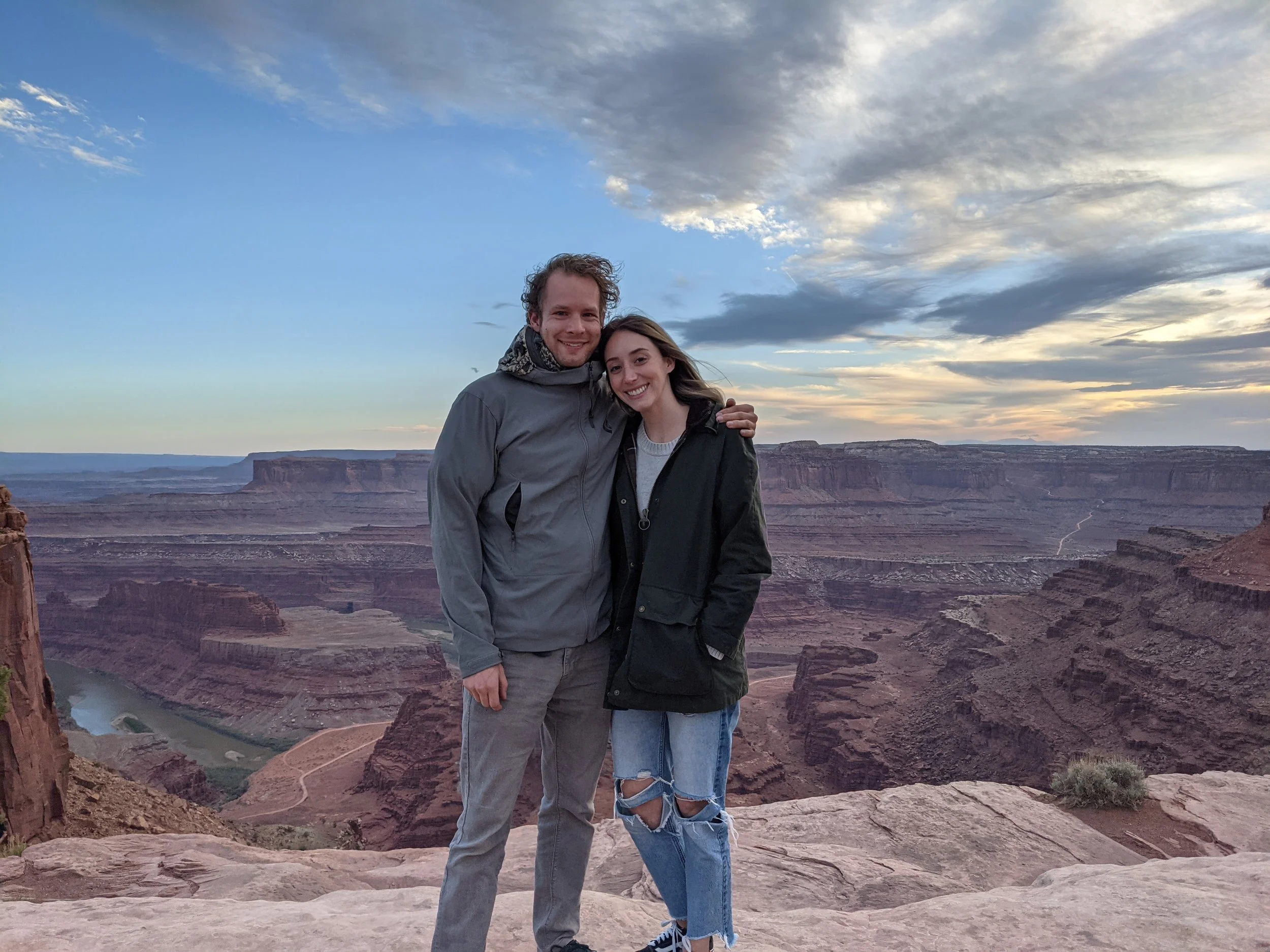Alexandra Farmer: Gardening to Cultivate Gratitude
My first of many collaborations on this BDW platform, I introduce to you a dear friend, lawyer, poet, and inspiration, Alexandra Farmer.
Alexandra grew up in Northeast Arkansas and currently lives with her partner and their four cats (yes, four) in Memphis, TN. When she isn’t waxing poetic about gardening, you can find her rock climbing, reading the latest nonfiction book on animals, or developing her next intellectual love affair.
Alexandra and I both grew up in the same area, but didn’t really connect until recently. We became much closer over the last few years after my accident, opening up about the struggles in life, and having a shared path of going through difficult law degrees and doctorates, only to find out that it wasn’t our true path that we were meant to be doing together. From Nashville to Memphis to Jonesboro, our friendship has ONLY just begun.
I am SO excited to share the first of many blog posts written by this girl on wellness subjects that that she is passionate about. She is an exceptional writer, thinker, and creator, and I’m BEYOND happy to shout her name, her work, and my love for her from the rooftops!
————————————
Cultivating Gratitude
If you had told me 5 years ago that my passion at 32 would be gardening, I would have told you about the long line of dead succulents and shriveled orchids I had already left in my wake. But this morning, like most mornings these days, I hopped out of bed and hurried outside to survey my little green family that encases the exterior of my home, noticing new buds and sending love to my friends who continue to hobble along after an extreme cold snap that nearly killed them.
My relationship with my garden has done for me what many tiny, white pills and doctors in armchairs never could. It taught me about being present, love, reciprocity, rest, gratitude, and awe, and in many ways, healed me.
For a plethora of reasons and not least of them being gardening, I am a different person today. I relish in the beauty of life—but not just the beautiful parts of it. I see the lessons in each wilted stalk, the abundance and color that comes from a winter of rest and grey, the wonder in the symbiotic relationship between the beans that pull nitrogen from the air to give to the protective, prickly leaves of the squash and the corn, which, in turn, gives the beans a place to grow as they reach toward the sky, and I understand my place in all of it.
In Robin Wall Kimmerer’s 2013 book Braiding Sweetgrass (which you should read if you haven’t), Kimmerer, who is a Professor of Ecology and member of the Potawatomi Nation, talks about the profundity of nature and realizing our place as humans in it—that we are not apart from but a part of the natural world, and just as the bees and the beans have a job to do in serving their ecosystem, so do we. The plants and the animals that evolved from our shared single-celled ancestors were here long before we decided to walk on two legs, and will likely be here after us, but for now, our gift and duty is to witness and feel awe at this verdant world around us that cares for us in spite of what we do to it.
We have the consciousness to see and understand the interwoven ways in which the world and everything in it seems to work together to sustain the other. Our gift is gratitude, and in entering this relationship and taking up our place in the ecosystem, we are humbled and changed.
If you’re interested, here are some tips for starting your own garden:
Check out Ron Finley’s MasterClass on gardening
I recently watched it but wish I had come across it so much sooner
Figure out what hardiness zone you’re in to understand what grows best in your area
If you want to grow a food garden and live in an urban area or near any industrial areas/factories, get your soil tested to make sure anything you grow in the ground is safe to eat
Usually, soil labs at universities will do this for free or at a low fee or you can purchase DIY tests from local nurseries or home improvement stores
If your soil isn’t safe, you don’t feel like getting it tested, or you can’t access land, make or buy a raised bed
Try to avoid any materials made out of plastic or painted/treated wood if you’re growing food
Get seeds, seedlings, or plants from your local nursery or online
I personally love Kitazawa Seed Co.
Start with just a few different types of plants so you aren’t overwhelmed
Adopt a growth mindset and remember that gardening is a relationship and a practice in patience—you won’t always get it right…and that’s okay!
Surrender to the uncertainty and go play in some dirt!
————————————



